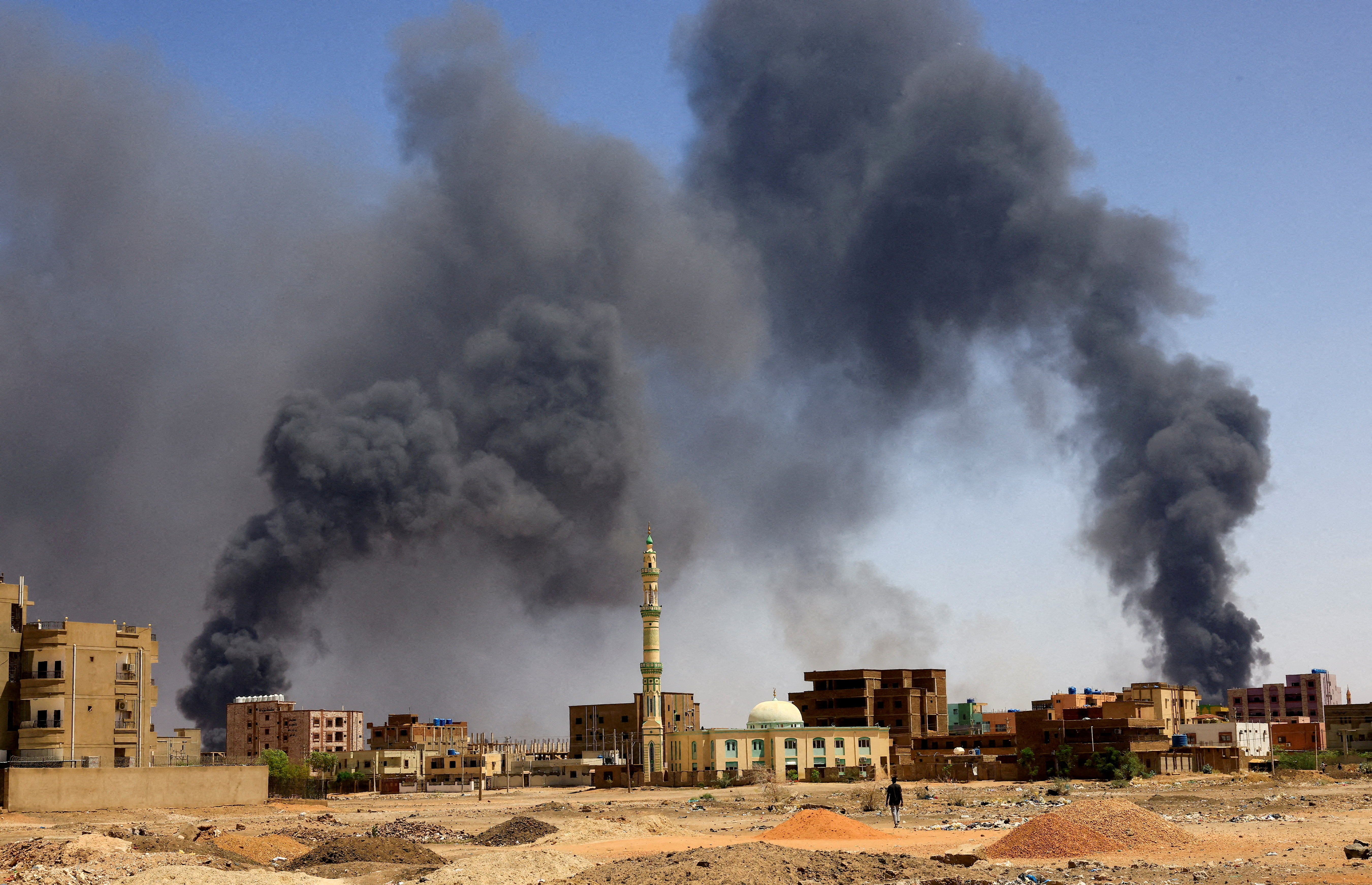
Washington, DC – The United States has imposed the first sanctions related to the conflict in Sudan, warning that it will “hold accountable” all those undermining peace in the northeast African country.
Thursday’s sanctions targeted two firms associated with the Sudanese Armed Forces (SAF) and two others linked to the paramilitary Rapid Support Forces (RSF).
The White House also said it was imposing visa restrictions “against actors who are perpetuating the violence”, but did not identify them.
“Despite a ceasefire agreement, senseless violence has continued across the country – hindering the delivery of humanitarian assistance, and hurting those who need it most,” US National Security Adviser Jake Sullivan said in a statement.
“The scope and scale of the bloodshed in Khartoum and Darfur, in particular, is appalling.”
The RSF and the Sudanese military — led by two rival generals — have been locked in a fight to control the state and its resources since mid-April. The violence has killed hundreds and displaced more than 1.3 million people.
The US sanctions targeted companies controlled by RSF chief Mohamed Hamdan “Hemedti” Dagalo that are based in the United Arab Emirates and the Sudanese capital Khartoum, as well as two defence firms linked to the SAF, which is led by General Abdel Fattah al-Burhan.
“Through sanctions, we are cutting off key financial flows to both the Rapid Support Forces and the Sudanese Armed Forces, depriving them of resources needed to pay soldiers, rearm, resupply, and wage war in Sudan,” US Treasury Secretary Janet Yellen said in a statement.
“The United States stands on the side of civilians against those who perpetuate violence towards the people of Sudan.”
US officials have previously threatened sanctions against the warring parties in Sudan, should the conflict continue.
Washington and Riyadh have helped broker several ceasefire deals over the past weeks, but residents have continued to report fighting despite the agreements.
Earlier this week, the sides agreed to prolong a shaky truce that was set to expire early next week, extending it for five days to enable the delivery of humanitarian assistance.
But talks between the warring sides in the Saudi port city of Jeddah were suspended on Wednesday after army representatives withdrew from the negotiations, accusing the RSF of violating ceasefire deals.
“The failure of the Sudanese Armed Forces and Rapid Support Forces to abide by the ceasefire only further deepens our concern that the people of Sudan will once again face a protracted conflict and widespread suffering at the hands of the security forces,” Sullivan said on Thursday, promising that the US will do everything it can to prevent that outcome.
Rights groups have warned of a humanitarian catastrophe if the conflict continues.
The US says its primary aim in Sudan is to reduce the violence before working towards a permanent end to the fighting and a return to civilian rule in the country.
After years of animosity, ties between Khartoum and Washington had been warming since the Sudanese military removed longtime President Omar al-Bashir from power in 2019 following months of anti-government protests.
The two countries re-established diplomatic ties in mid-2020, and in the following months, Sudan also agreed to normalise relations with Israel and was removed from the US’s list of “state sponsors of terrorism”.
In October 2021, the Sudanese military staged a coup against the civilian government of Prime Minister Abdalla Hamdok, leading to his resignation in early 2022.
Burhan, the head of the military-dominated Sovereign Council, has practically governed the country since Hamdok’s departure. Hemedti served as his deputy, but he was removed from that position last month amid the fighting.
Before the outbreak of the violence in April, Sudan’s leaders were set to sign a deal to return the country to its democratic transition, but the accord was delayed because of outstanding disagreements.







